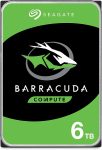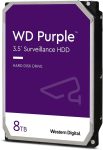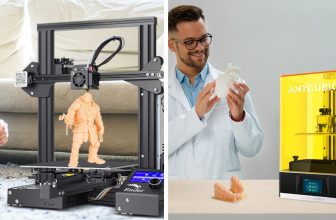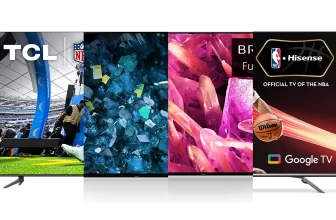Are HDDs still worth it in 2023?
Back in the day, Solid State Drives (SSDs) were a rare breed.We’re talking about the era when even compact flash felt like cutting-edge tech. Fast a couple years, and SSDs were still a luxury, carrying a hefty price tag. The common strategy then?
A tag team of a small, nimble SSD for speed and a hefty Hard Disk Drive (HDD) for the heavy lifting. But wouldn’t you know, times have changed now. Today, you’ll find systems going all-in on SSDs, leaving hard drives in the digital dust. Sure, hard drives might be cheaper, but are they still worth it, considering their extensive list of drawbacks?
Speed or Silence
When it comes to responsiveness and boot times, any modern PC worth its silicon should have its operating system running on an SSD. Even a modest 16 GBs can do the trick, though if you’re wrestling with Windows 10, you might want to bump that up to 32GBs at least.
But here’s the real question: Can a single hard drive pull off the multitasking ballet? Can it seamlessly handle media playback, file transfers, and a bit of light gaming across multiple monitors? Well, the answer is a bit more complicated than a ‘yes’ or ‘no.’
When multitasking, hard drives might be able to handle multiple applications while gracefully transferring a massive video file. However, just because it can be done doesn’t mean it should. Enter thrashing – a scenario where data shuttles back and forth between the drive and memory, many times over a quick period of time, subjecting the mechanical components to unnecessary wear and tear.
You see, hard drives, with their physical read heads on a seek-and-find mission, have their limitations. Sure, SATA’s native command queuing helps, but it’s like putting a Band-Aid on a physical constraint that SSDs simply don’t have.
SSDs bring the speed, responding to software commands, making your computer feel snappy and quick. No more waiting for a mechanical head to locate files – it’s all gathered and processed, leaving hard drives in a pretty awkward spot.
However, the appeal of SSDs goes beyond surface features. Apart from their speed, SSDs stand out in the storage realm for their silent operation. Unlike traditional hard drives with audible mechanical parts, SSDs maintain a noise level comparable to a quiet midnight library. Additionally, they exhibit a power-efficient behavior, consuming significantly less energy. If you prefer a computing experience characterized by tranquility and minimal power consumption, SSDs present themselves as the ideal choice. Say goodbye to excess noise and unnecessary power consumption in your PC – it’s a win-win situation.
Durability
SSDs showcase robustness in the storage landscape. Their resilience is not limited to speed; they also outshine hard drives in toughness. In contrast, hard drives are akin to delicate flowers. A minor drop from a few feet can render them incapacitated, jeopardizing your valuable files.
Ever casually tossed a USB flash drive? Attempt the same with a hard drive, and you’re risking the fate of your data. SSDs handle a rugged lifestyle more effectively, making them the prudent choice for those prioritizing durability.
Fast forward to the era of 4K and 8K content. The pressing question arises – can hard drives keep up with escalating file sizes and demanding visuals? While 4K Blu-rays may have bit rates lower than the sequential transfer rates of mechanical drives, the situation may differ with 8K. However, the reality check is in. Even an aging 7,200 RPM SATA drive adeptly manages 8K footage. The takeaway? Unless the film industry adopts 48 FPS as the new standard, your reliable hard drive should still suffice.
Are HDDs worth it?
Solid State Drives emerge as storage superheroes – swift, quiet, durable, and power-efficient. They’ve revolutionized the landscape, leaving traditional hard drives struggling with outdated mechanisms. While SSDs may come with a higher price tag, the investment pays off in multiple ways. If speed, silence, and longevity are priorities for you, the choice is clear.
However, if you need massive amounts of storage for media consumption, a home made NAS server, backup files that don’t need to be accessed that often, or even store a bunch of games that you don’t feel like deleting just yet, but also don’t play that often, HDDs are still a solid choice, considering how much cheaper they are at the current market.
SSDs prices have come down significantly since their inception a couple years ago and they are likely to continue to go down in price as technology advances and there will probably be a point where SSDs may be cheaper than HDDs. Unfortunately, we are not there yet, so HDDs still have an important place in the PC parts market, and if your needs match what we’ve discussed in this article, then an HDD will suit you just fine. For the time being.











